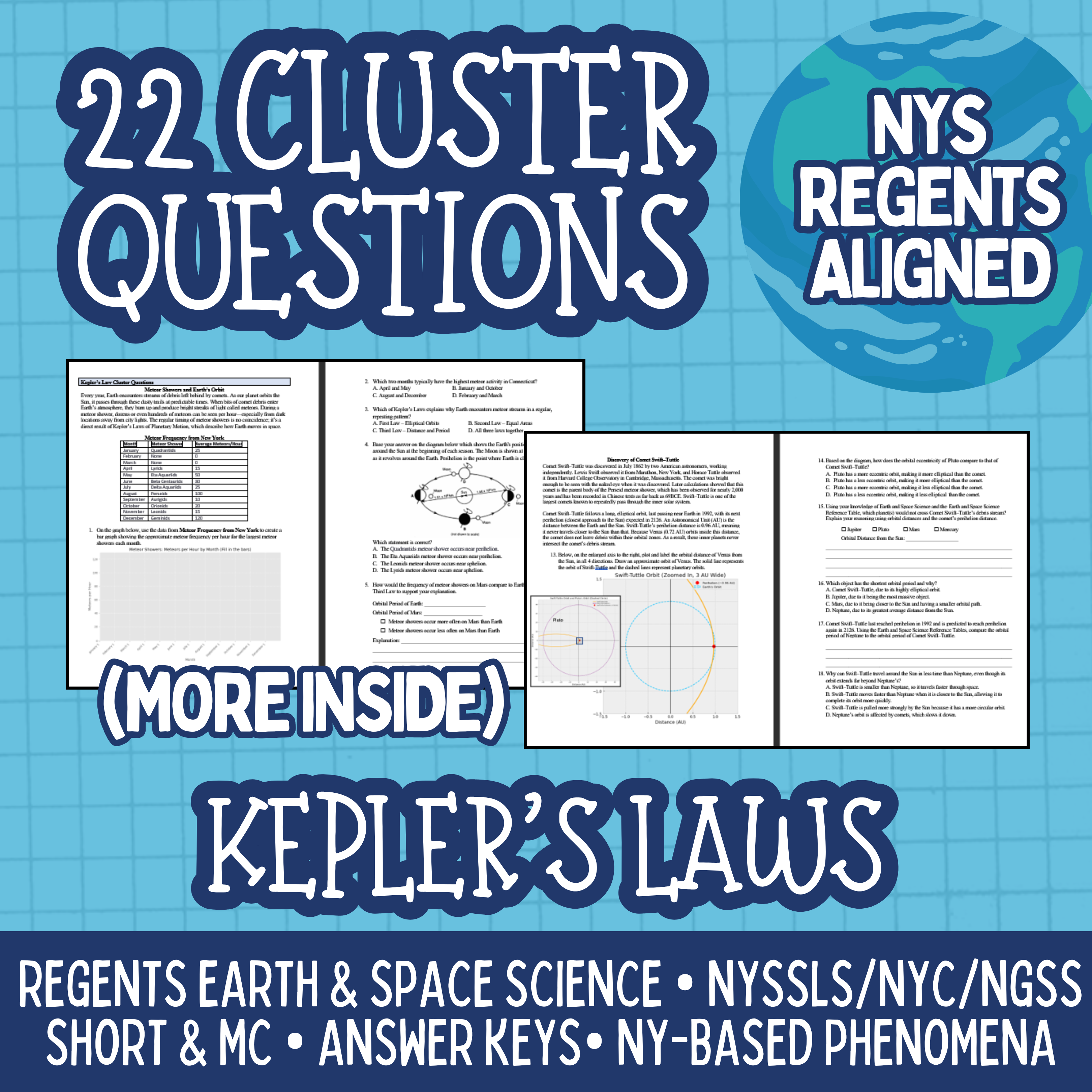22 Kepler's Law Cluster Questions

New Resource Drop:
Kepler’s Laws Regents-style Cluster Questions
Grab the Kepler’s Laws Cluster Questions
If you'd like to see the preview, grab it here!
One of the topics for students in NYS Regents Earth & Space Science is Kepler’s Laws and orbital mechanics — and it’s a topic that shows up again and again on the exam. Add in meteor showers, comet orbits, and data interpretation, and suddenly students are juggling multiple concepts at once.
That’s exactly why I created this 22-question Regents-style Cluster Set: to give students meaningful, scaffolded practice that blends graphing, data analysis, short response, and multiple choice questions using real New York–based phenomena.
What’s Inside
This set is designed for flexibility — perfect for stations, test prep, independent practice, or warm-ups. It includes:
-
Real meteor shower data, where students a create bar graph of New York viewing frequencies
-
Applications of Kepler’s Laws, including elliptical orbits, orbital periods, and Earth’s predictable encounters with comet debris
-
Regents question formats, including multiple choice, short response, data-based, and writing prompts
-
New York phenomena such as dark-sky locations, Swift–Tuttle comet history, and meteor viewing across the state
-
A complete answer key for easy grading or self-checking
Standards Alignment
These clusters are aligned to NYSSLS and Regents Earth & Space Science standards, including:
-
HS-ESS1-4 – Kepler’s laws and planetary motion
-
HS-ESS1-6 – Modeling orbital motion
-
HS-ESS1-2 – Evidence from light spectra and celestial motion
They’re built to match the format and rigor of Regents clusters while staying accessible to diverse learners with tiered prompts and scaffolded tasks.
Why Meteor Showers?
Meteor showers are predictable because of Kepler’s Laws: Earth crosses the same comet debris streams at the same points in its orbit each year. By connecting real data from New York skies to Regents concepts, students see how celestial mhttps://www.teacherspayteachers.com/Product/Keplers-Laws-22-...echanics plays out right above their heads.
Get the Kepler Cluster Questions
Grab the Kepler’s Laws Cluster Questions
This set is ideal for:
-
Regents prep and practice
-
Station work or mini-assessments
-
Sub plans
-
Homework packets
-
Tutoring and intervention groups
Test/Assessment questions
